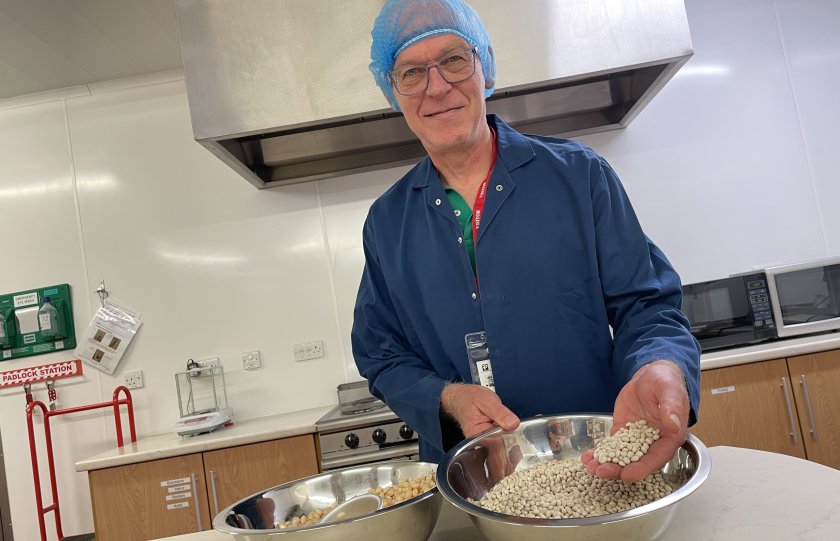
British baked beans grown using innovative methods have progressed to the tinning phase, with researchers hailing it as a step towards sustainable, UK-sourced food options.
A specially bred haricot bean, grown in Lincolnshire with the help of Warwick University, are the first UK bean that can be used as baked beans.
Previously, baked beans have had to be imported from as far as South America and China.
The beans are now grown on a commercial scale at a farm in Lincolnshire following 12 years of research.
Warwick University scientists hope that the baked bean breakthrough will reduce the reliance on imports.
Growing haricot beans on a commercial scale could also contribute to achieving climate goals in the food sector, as well as improving soil structure.
Professor Eric Holub said the development showed a commitment to fostering locally sourced, high-quality produce.
He added that self-sufficiency in food production was important for reducing human impact on global climate.
"British-grown beans can help us shift our diets to a healthier future, adding to UK ingredients, and supplying the growing trend of flexitarian diets."
Researchers and farmers went to the Princes factory in Spalding to see the British beans being tinned.
Lincolnshire farmer Andy Ward, who now grows them on a commercial scale in Leadenham, hailed the new phase.
“It’s absolutely fantastic to be the farmer that’s grown these beans," he said.
"To see them go through the line and into a tin – soon to be on a piece of toast, is unreal”.
The tinning phase is a trial, with researchers saying the beans will not appear on supermarket shelves just yet.
